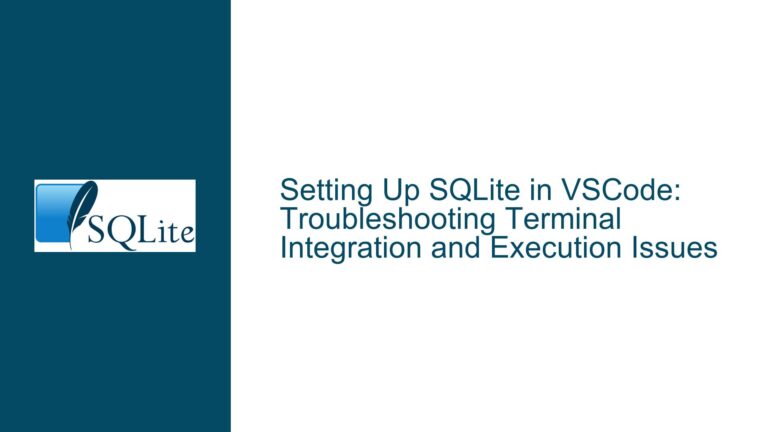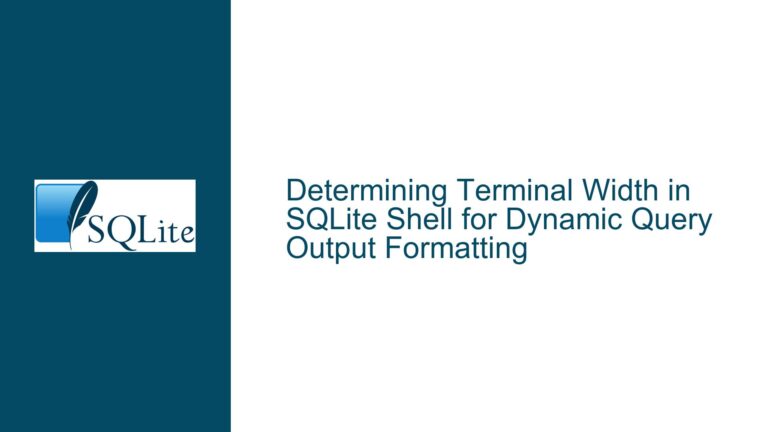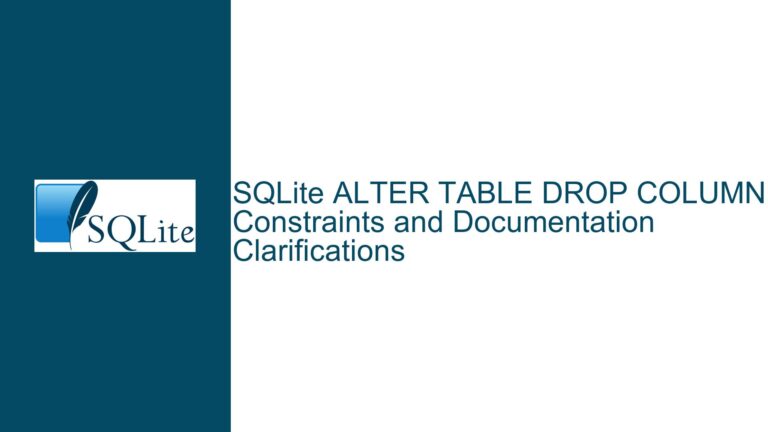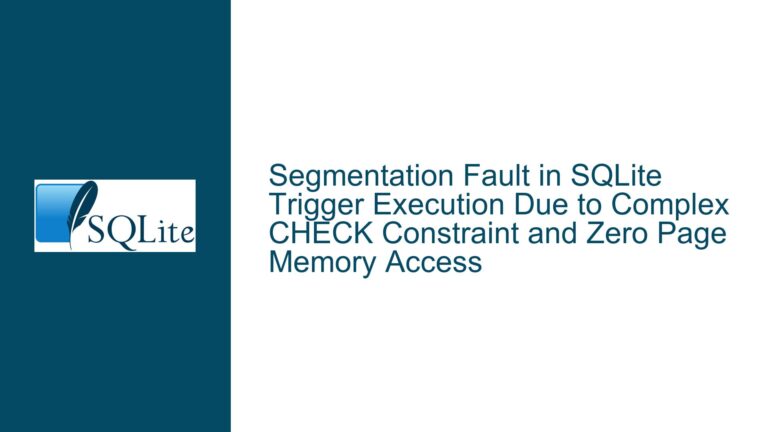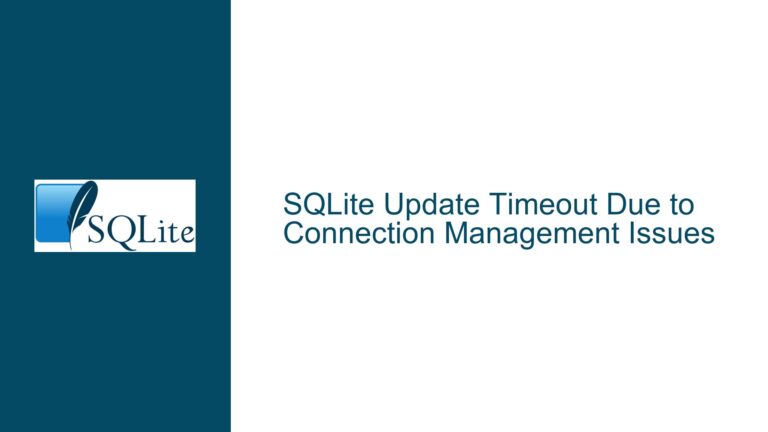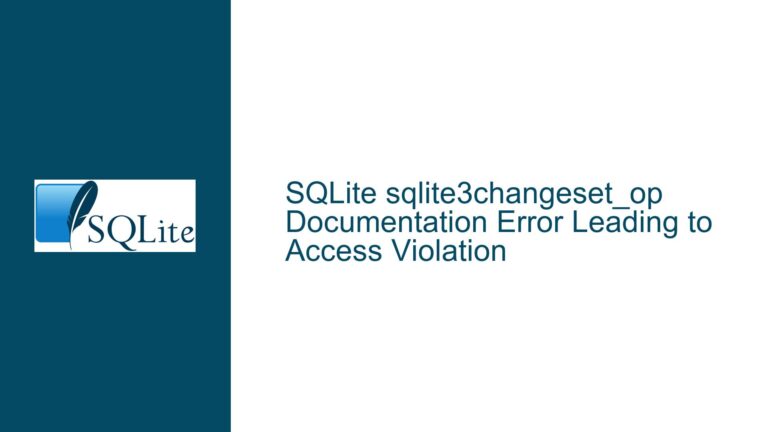Setting Up SQLite in VSCode: Troubleshooting Terminal Integration and Execution Issues
SQLite Terminal Integration in VSCode Fails to Execute Queries The integration of SQLite within the Visual Studio Code (VSCode) environment is a common requirement for developers who wish to streamline their workflow by having both their code editor and database terminal in a single interface. However, setting up SQLite in VSCode can be fraught with…
